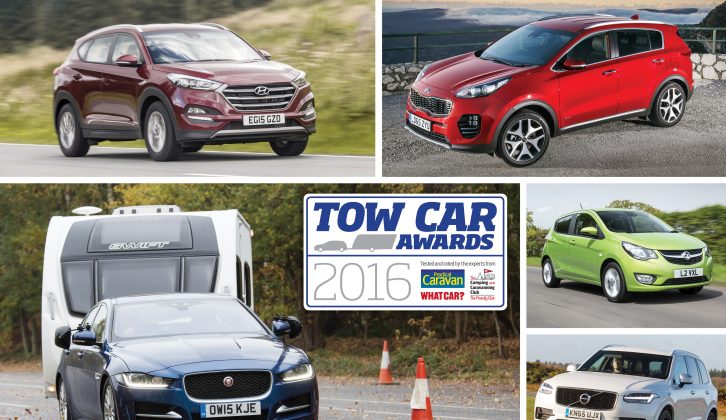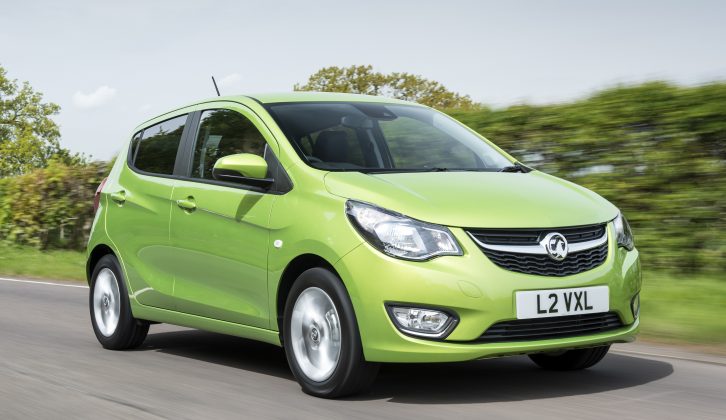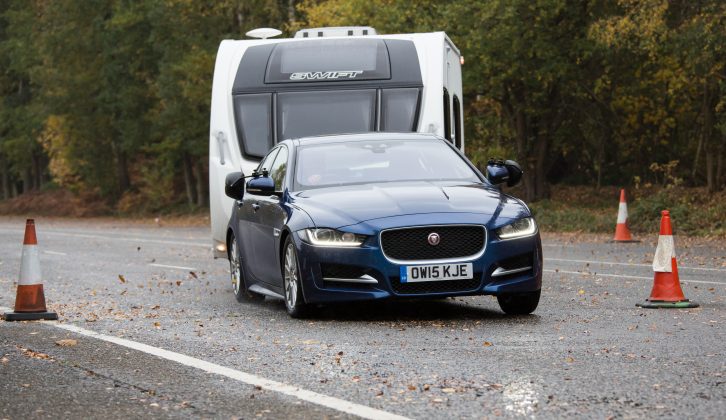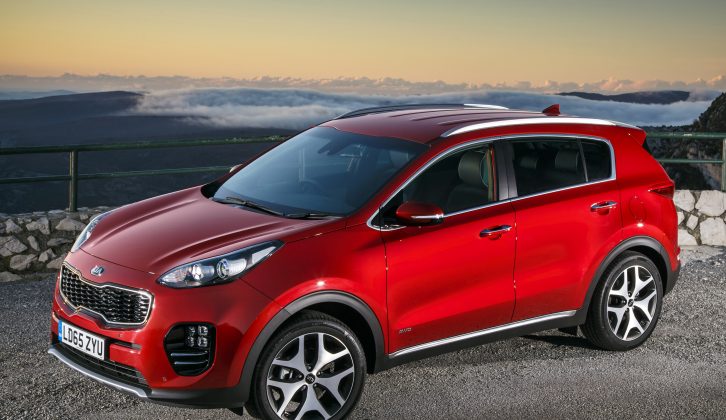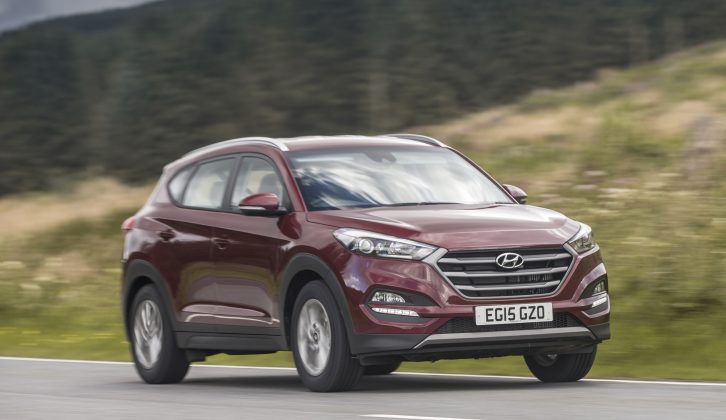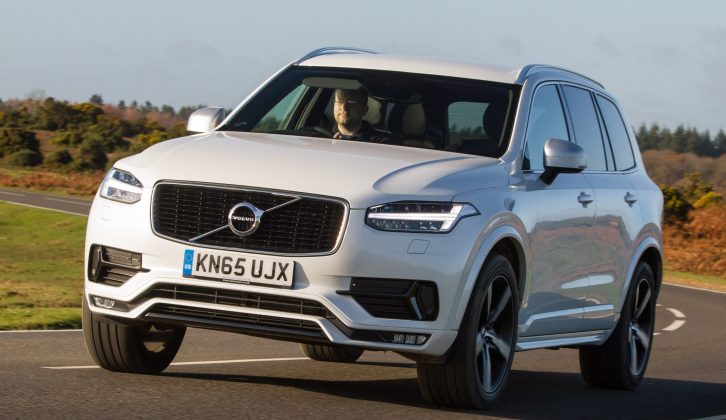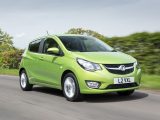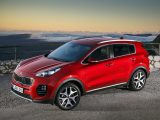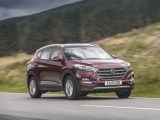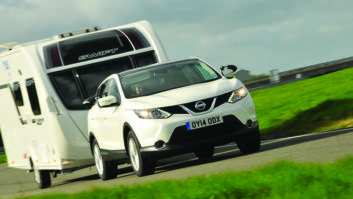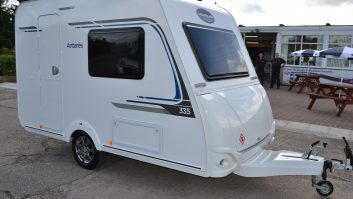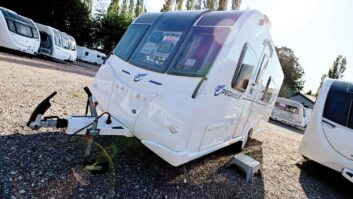There’s still another seven weeks to go, give or take a few days, before testing starts for the Tow Car Awards 2016. But for the past few months, preparations have been underway with our friends at The Camping and Caravanning Club and What Car?. The list of contenders for the title of Britain’s best tow car is shaping up nicely.
Since 2013, our favourite small family car has been the Škoda Octavia – not least because it isn’t actually all that small. It will be interesting to see how it compares with the new Vauxhall Astra. I’ve only had a very brief drive in one, but Lizzie has spent rather longer behind the wheel and you can read her review here. It’s good to drive, packed with gadgets and it’s roomier than the old model. I’m really looking forward to finding out how the Astra stacks up as a tow car.
Two brands which have often won silverware at the Tow Car Awards are Jaguar and Volkswagen. VW has the reigning champion in its corner in the form of the Passat Estate. The Jaguar XE is a saloon rather than an estate, but it will be fascinating to see how the two compare as tow cars. The XE has been heavily praised, walking off with awards left, right and centre. It has a strong emotional appeal whereas the Passat is more of a rational choice. Which will find favour with the Tow Car Awards judging panel? We’ll see.
There’ll be a tough battle among mid-sized crossovers and SUVs. They might belong to the same parent company, but Hyundai and Kia are rivals as well as siblings. Hyundai’s new Tucson has quickly been followed to the market by the Kia Sportage. I think the Tucson looks great and tows extremely well, although the top-spec model I tested recently is rather pricey. I haven’t hitched the Sportage up to a caravan, but I was impressed with the car in solo driving. Given that the two cars share many components under the skin, they ought to be closely matched as tow cars.
In all the fuss around the two big-name Korean SUVs that have launched in the past few months, it’s easy to forget that SsangYong has also updated the Korando. It’s a car that divides opinion, although I think it’s superb value. Thanks to its new 2.2-litre diesel, it also has serious muscle for towing. What’s more, the high kerbweight (even the front-wheel-drive version weighs 1701kg) makes for more favourable matching ratios than you’d get with any similarly priced rival. Perhaps the updated car will have improved enough to convince the doubters.
The heaviest weight class could be the most interesting of all. The Land Rover Discovery has won the battle of the heavyweights every year but one since we started the Tow Car Awards in 2007. This should be the last time that the current Discovery competes at the event, with the all-new Discovery set to appear next year.
There are signs the Discovery will have a tough time holding on to its title. There’s been a recall on the Discovery’s detachable tow bar (if excessive wear is found it’s replaced with a fixed unit). A recall is the responsible thing to do if a fault or potential fault is uncovered, but it does feel as if the Disco’s crown has slipped a bit.
Then there’s the list of newer models waiting to have a crack at the big Land Rover. The Volvo XC90 is one of the safest cars on the road, packed with clever features and driver aids. It’s beautifully made, tows very well, and has far better fuel economy and emissions than the Discovery.
The Audi Q7 tows superbly and also emits a lot less than the ageing Land Rover. To my ears the Audi’s six-cylinder diesel sounds a lot better than the four-cylinder diesel in the Volvo, but otherwise these two are very closely matched. Both the XC90 and Q7 should give the Discovery a hard time.
These are just a few of the match ups I’m looking forward to at the Tow Car Awards 2016. There’s plenty of work to do between now and the start of testing in April, so I’d better get back to it…
Which models will find favour with the Tow Car Awards judging panel?
